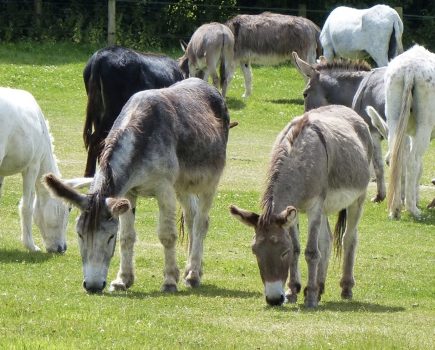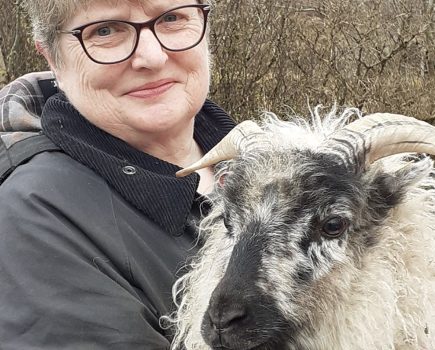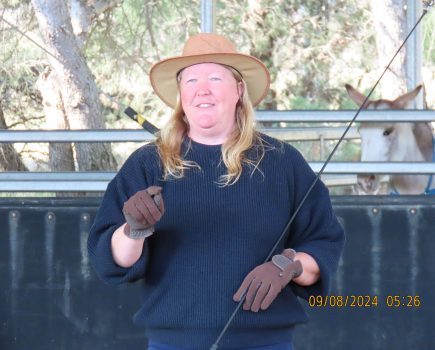What is it about goats that make them the Marmite of the livestock world?
To some – me included – they are wiley, acrobatic and full of character; to others – like Ludo – they are destructive escape artists that are also high maintenance and smelly. I happen to rather like the smell of goat, even a rather ‘ripe’ billy, and I loved the idea of keeping them at the farm, not least, as I said to Ludo, because there is a growing interest in goat meat. Goat meat is lower in fat than chicken and higher in protein than beef. It is also delicious. Cooked very slowly, because it is so lean, it is full of flavour and meltingly tender. ‘I really think that having goats would be of interest to would-be smallholders,’ I said, in my most persuasive voice. Ludo looked at Liz Shankland, who teaches the smallholding courses at our farm, for support. ‘I hate the little buggers,’ she confessed, ‘I had a few but they escaped and ate all my fruit trees.’ Ludo gave me a ‘told-you-so look’. ‘But,’ Liz added, ‘I do think it would be good to include them as part of the courses and to show them people. They are a good, all-purpose smallholding animal, producing milk and meat if you get the right breeds. You just need bloody good fences.’
Ludo knew all was lost when I piped up that Adam Henson had offered us two female Boer cross Guernsey goats. Honey and Biscuit had been hand reared and named by Adam’s children. When they arrived, even Ludo had to concede they were appealing, with their funny square eyes, floppy ears and endless quest for attention. We put them in a field with a shelter, a new fence on three sides and a high stone wall on the other. Within days they discovered that if they jumped on to the wall and over the other side there were lots of lovely, young, tender orchard trees within easy reach. After being caught mid-feast (luckily by me and not Ludo. I’ve still not told him) we put them in another field, with no wall, but lined with a mature hedge which we thought would keep them content. Which it did, until it rained.
Goats, it transpires, hate the rain. Honey and Biscuit would bleet pitifully at the first hint of it. We soon realised that they were far more accurate forecasters than the Met office. We also learnt that they would get rain scald on their ears, that their feet would quickly become sore from the mud and, rather than just stoically hopping about like sheep, they would lie down and refuse to get up. There was only one thing for it. In they came, to a nice warm barn. Their feet were trimmed and sprayed – which elicited as much noise and protest as if we’d been trying to murder them, and gradually their scald cleared up and on dry afternoons they would go out.
We thought keeping goats would be little different from keeping sheep. We were wrong. They require a different sort of care and a different sort of handling. They are undeniable drama queens, but now we know what they like and don’t like, even Ludo has developed something of a soft spot for them. Honey and Biscuit have since had their first kids. We sold a couple, kept one and ate another. They are beginning to earn their keep and have definitely earned our affection. So much so I’ve just bought six more…
humblebynature.com @katehumble







